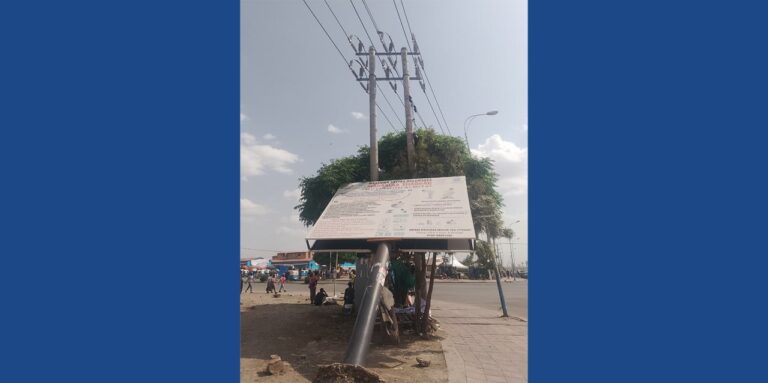Ethiopia has recently begun to attract the world’s attention in connection with cryptocurrencies. The 2024 Global Crypto Adoption Index calculated by Chainalysis has Ethiopia ranked second in Africa, superseded only by Nigeria, and 26th in the world. Ethiopia is singled out as the fastest-growing African market for retail-sized stablecoin transfers. Furthermore, Ethiopia ranks fourth globally as a Bitcoin-mining destination, after the United States, Hong Kong and the wider Asia. Apparently, it leads its African peers by a mile in Bitcoin mining capacity. Hence, some observers are heralding Ethiopia as “the new global hub for crypto mining”. But sadly, all this is not an achievement to be proud of, but rather a brand on our technology preference, resource management and moral judgment.
The background: Cryptocurrencies (in short “crypto”) are digital or virtual tokens that can be traded for fiat currencies on centralized exchanges or peer-to-peer trading platforms. A type of cryptocurrency whose value is pegged to fiat currency is referred to as “stablecoin”. The first and most publicized cryptocurrency is Bitcoin, launched in 2009. Crypto’s defining feature is that ownership or conveyance is first established by solving complex codes aka “hashes” iteratively using specialized machines in a competitive process called “mining”, and then recorded on a decentralized and updatable digital ledger called “blockchain”. Owners of crypto tokens are required to set up a crypto “wallet” – be it digital, paper or device – in order to store those tokens securely. So, no external party, neither a bank nor a legislative authority, is needed to create, deposit, or transfer cryptocurrencies. And users retain considerable anonymity.
However, cryptocurrencies’ raison d’être is far from convincing, and their supposed economic benefits do not hold up empirically. Indeed, the spectacular rise of crypto, especially in the United States, has been found to be part ideological, part promotional and it has fed on individual investors’ irrational optimism. It is not an outcome of a plausible economic rationale.
First of all, the widespread narrative that cryptocurrencies are a form of money begs the question of what is meant by money. Crypto tokens do not properly serve any of the three primary functions of money: (a) they are not widely accepted as a medium of exchange; (b) they are undependable store of value, for their prices are highly volatile; and (c) they are not a unit of account, as few goods and services are quoted in crypto units.
The concept of cryptocurrencies replacing conventional money nationally and the U.S. dollar in international trade over time is a fairytale that is not feasible. To begin with, fiat money, in general, serves its primary functions efficiently, except in crisis times. Besides, as argued by the IMF, the widespread use of cryptocurrencies poses substantial risks to financial stability and the effectiveness of monetary policy. If one needs a natural experiment, crypto (specifically Bitcoin) has so far had two auditions for legal tender status, held in El Salvador and the Central African Republic, and both have been to no avail. Last, whether we like it or not, the U.S. dollar’s dominant role as an international currency is here to stay for the foreseeable future.
Cryptocurrencies are also incredibly risky as an investment vehicle. Unlike fiat currencies, which have legislative backing, unlike commodities such as gold and oil, which have underlying economic uses, and unlike even stocks, which reflect – at least partly – the values of companies, cryptocurrencies derive their value entirely from what people are willing to pay for them. The crypto market is thus highly speculative. A consequence of this is that repeated market crashes have become inevitable, leaving behind a trail of naïve and financially vulnerable investors who lost their savings. The price plunge, by the way, applies to the so-called stablecoins, which are supposed to have a fixed value.
The assertion that the blockchain technology used by cryptocurrencies makes the latter “futuristic” is also refuted by the facts. The world has already moved from a barter system and commodity money through to fiat money and checks and finally to electronic payment systems such as debit and credit cards, mobile and internet banking. The hallmark of this transition is significant reduction in transaction costs and much greater convenience. By contrast, creating or transferring cryptocurrencies is awkward, technically complex and inherently costly. Mind you, processing a single crypto transaction requires a large network of miners as opposed to just a trusted bank in the case of a fiat money transaction. And so, in the words of Paul Krugman, a Nobel Prize winner in economics, “crypto remains a solution in search of a problem”.
The implication for Ethiopia is clear: while the country’s vision to digitally transform and become a hub for technological innovation is highly commendable, it would be a major policy error for the government to mix up value-adding technologies, such as artificial intelligence (AI), and technologies that flatter to deceive, like crypto.
But, there is one area where crypto has proved its worth, and that is criminality. There have been several instances of cryptocurrencies playing a key role in tax evasion, money laundering, capital flight, drug trafficking, extortion, political election meddling, and financing terrorism. Bribing public officials, in particular, has gotten easier. Why should these officials worry about registering their wealth or disclosing their bank accounts when they can anonymously stash their ill-gotten money in cryptocurrencies? In fact, the crypto ecosystem itself has been infested with thieves, hackers and scammers, and crypto appears to be well on track to join the likes of Ponzi and Pyramid schemes as one of the most fraudulent investment products of all time.
Given this, the 2025 National Bank of Ethiopia Proclamation deserves credit for prohibiting trading cryptocurrencies or using them as a means of payment. However, instead of “monitoring global trends”, the NBE should evaluate cryptocurrencies on their own merit. The fact is that the claimed benefits of crypto have already been realized by existing technologies. Today, Ethiopians can choose between various forms of electronic money; digital transactions have exceeded cash transactions. And there is no logical or legitimate ground for the NBE’s goal of “deepening usage of digital payments” to extend to cryptocurrencies. Neither is financial inclusion a compelling reason to adopt crypto. You do not want to bring more of your citizens into a most risky and deceptive monetary scheme.
The story does not end here. What is even more baffling is that mining cryptocurrencies – creating those economically valueless encryption keys – consumes gigantic volumes of electricity. The adage goes: “With mining rigs, energy goes in, money comes out”. Typically, thousands of miners in a crypto network compete to validate transactions and thereby generate new cryptocurrencies using energy-intensive computational power. It is estimated that to mine Bitcoin alone devours as much electricity as many countries. But energy is scarce all over the world, and many governments, most notably China, have banned crypto mining. So miners are always on the lookout for cheap, uninterrupted electricity supply and welcoming jurisdictions.
And it seems that crypto miners have now launched, so to speak, a full-scale invasion on Ethiopia. The Ethiopian government has made pitiful resistance so far, apparently won over by windfall gains in U.S. dollars. Also, some mining companies have camouflaged their operations with “digital development”, “data mining”, and “green energy management/development” projects. A fig leaf of “electricity infrastructure development” is added too. Other miners are probably conducting underground operations in basements and bedrooms, or just embedded in other businesses. In any case, the Ethiopian Electric Power reportedly earmarked around 600MW hydroelectricity to crypto – mainly Bitcoin – mining facilities in 2024 alone. This electricity supply is equivalent to about 10% of Ethiopia’s installed hydroelectric power capacity, or to more than the combined capacity of Tekeze, Melka Wakena and Fincha hydropower plants.
This is misallocation of our resources for a variety of reasons. First, the underlying notion that Ethiopia has “cheap hydroelectric power in abundance” is a misconception. Ethiopia remains one of the least electrically powered countries in Africa, with less than 60% of its 130 million population currently on the national electricity grid. And domestic demand for electricity is increasing very rapidly, and it will not be easily satisfied even with the completion of the hard-built Grand Ethiopian Renaissance Dam (GERD), which will almost double the country’s hydropower potential. Second, the opportunity cost is huge. While Ethiopia has gained some millions in foreign currency, it comes at the expense of tens of thousands of households or several manufacturing firms capable of generating even more hard currency long term. In fact, electric power has long been identified as one of the major bottlenecks in truly transformative economic sectors such as manufacturing. Finally, if crypto mining continues to siphon off energy on such an epic scale, how and when is Ethiopia going to meet its universal electrification and economy-wide energy transition goals?
Under these conditions, the government’s decision to export electricity to neighboring countries might be justified, at least on geo-political grounds. But supplying large amounts of scarce electricity to a fallacious and trendy industry is not only opportunistic but deeply irresponsible as well. That is no way to finance development projects. And right now the inevitable pressure on the national grid is causing grotesquely repeated power blackouts in Addis Ababa and the rest of the country, much to the frustration of homes and especially businesses. The Ethiopian electricity provider cannot go on blaming tall trees, bad weather, or poor infrastructure. What is particularly sickening about these power failures is that they are being imposed on top of inefficient customer service, and that the Ethiopian Electric Utility has recently used its monopoly power to raise prices exorbitantly on most types of subscribers, making a dent in meager household budgets.
This is not to say, however, that Ethiopia should host crypto mining if the latter somehow manages to cut back its immense energy requirements. For to do so would still be saying something like: “You cannot use or trade cocaine here, but you can produce and export it from here”. Ethiopia could, in effect, be aiding and abetting a global scam network.
The bottom line is that the Ethiopian government, unless it is willfully ignorant, must sever all ties with crypto – be it through trading or mining, and the sooner the better. Yes, the crypto faithful, and even some well-meaning people, call for a regulatory framework instead. But we want to regulate and tax genuine, problem-solving industries. The whole crypto thing doesn’t serve the long-term best interests of our society. We need to wake up and smell the coffee.
Matias Assefa is an Economic and Business Analyst based in Addis Ababa. He can be reached at matias.assefa@gmail.com





